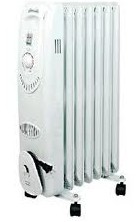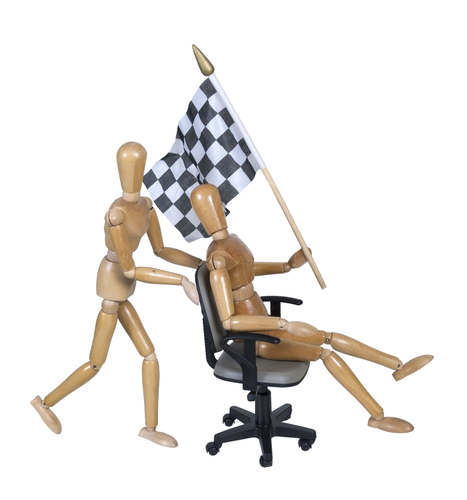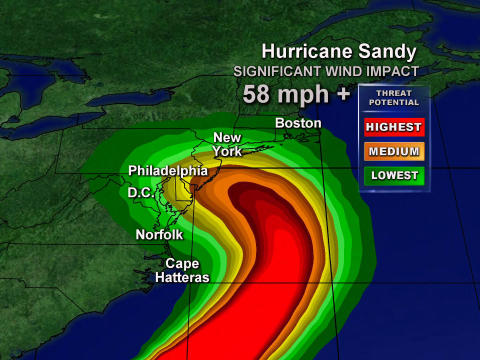Have you been told by the landlord that electric space heaters are illegal, or has the space heater that was tucked under your desk been confiscated? You may be surprised to learn that in New York City, the use of electric space heaters in a commercial office building does not violate fire or building department code.
Though electric space heaters are legal to use, many buildings prohibit their use and tenants must comply with the rules and regulations of the building. The primary concerns surrounding the use of space heaters is the tremendous amount of energy they consume as well as tenants overloading circuits creating a potential fire hazard.
This issue is common when a tenant plugs a high draw space heater into a cubicle receptacle and blows the circuits to the entire cubicle line. This affects other employee’s productivity and often causes unsaved work on computers to be lost. Not to mention it’s an inconvenience to the building management and others who may have lost power.
The New York City Electrical Code, not the Fire Code Code establishes maximum electrical loads where electrical appliances are connected to receptacles by cords and plugs. The code allows a maximum load of 12 amperes for a 15-ampere-rated circuit, and a maximum load of 16 amperes for a 20 ampere-rated circuit. Electric space heaters typically draw a significant amount of current. For example, a normal “convenience outlet” circuit will be protected by either a 15 or 20-amp breaker. That 1500 watt heater will draw about 12 amps from the outlet. On a 15-amp circuit, that’s leaving just three amps for whatever else is plugged in. Chances are very good that you’ll wind up tripping the breaker.
To avoid creating a hazardous condition that could cause a fire, building occupants should consult with the building owner or manager before plugging in and using any portable electrical appliance. Most tenants aren’t aware of the power draw on a specific circuit and wind up tripping the breakers.
Another thing to consider is that the outlets in an office are probably the sort that are built into the cube walls. There’s a plug-and-socket connector at the end of each panel, so if you’re at the far end of a set of cubes from the electrical feed, there could be a lot of connections along the way. Attempting to pull 1500 watts through this will result in quite a bit of power being lost along the way through all of those connections, and heat generated at each. Repeated heat-cool cycles of the connections tends to result in worse connections, more heat at the connections, and so on until one of them fails and the whole set of cubes goes dead.
In many older buildings during a time before computers, people had few appliances. Maybe a desk lamp and a radio in their office or an intercom. All the offices might be on the same circuit. Now, people have multiple computers and peripherals, plus copiers, fax machines, and flat screen TVs, on the same circuit! So that space heater will likely trip a breaker. The power draw aside, one of the major risk problems with portable heaters is that people forget to turn them off. You get up at the end of the day, shove your chair under your desk and walk away. The heater comes on and ignites the chair fabric. Remember to shut your heater off at the end of the day.
If buildings permit space heaters, check with management as they can suggest a space heater that is both safe and energy-efficient for your space.
Here are some tips
- When purchasing an electric space heater, look for heaters with automatic shut-off features.
- Only use equipment that has the Underwriters Laboratories (UL) Mark, which shows that the product has been safety tested.
- Give Space Heaters Space. Place the heater at least three feet from any combustible material such as furniture.
- While heater cords normally become warm during use, stop using the heater if the cord becomes hot.
- Never use an extension cord with a space heater.
- Place the heater on the floor; never place on a counter top or furniture.
- Turn off/unplug the space heater whenever you leave at the end of the day.
- Do not bring space heaters from home. These can be fire hazards especially if left unattended.
Discover more from Helping NYC & Long Island Commercial Tenants, Owners, and Developers
Subscribe to get the latest posts sent to your email.






The space heater is very useful in winter heater. But it is very fire hazard. In this article, you shared the best guidelines to use space heater safely. Thank you for sharing this useful content. This instruction will help us to avoid firing hazard.
The questions “are space heaters legal?” Draw a significant parallel to “is driving 55 legal?”
It all depends where you are.
But the real question is: are they safe for the rest of the equipment in your office?
On systems furniture generally there are going to be 3 cubicles connected per 20 amp circuit.
On hard wall outlets there are usually six outlets per 20 amp circuit.
20 amp circuit has a sustain capacity for 15 – 16 amps maximum.
If you draw over 20 amps the breaker will trip, but if you are drawing between 16 and 20 the wiring will overheat and can cause a fire. With the overheating of the wiring the connections loosen up causing the voltage to drop. All equipment requires 110 volts. Operating under lower voltage will cause overheating on the equipment it self. For example some task light will operate with only 85 volts.
I have been in the office furniture business since 1979 and most (I would say over 90%) of electrical failures on systems furniture are due to space heaters.